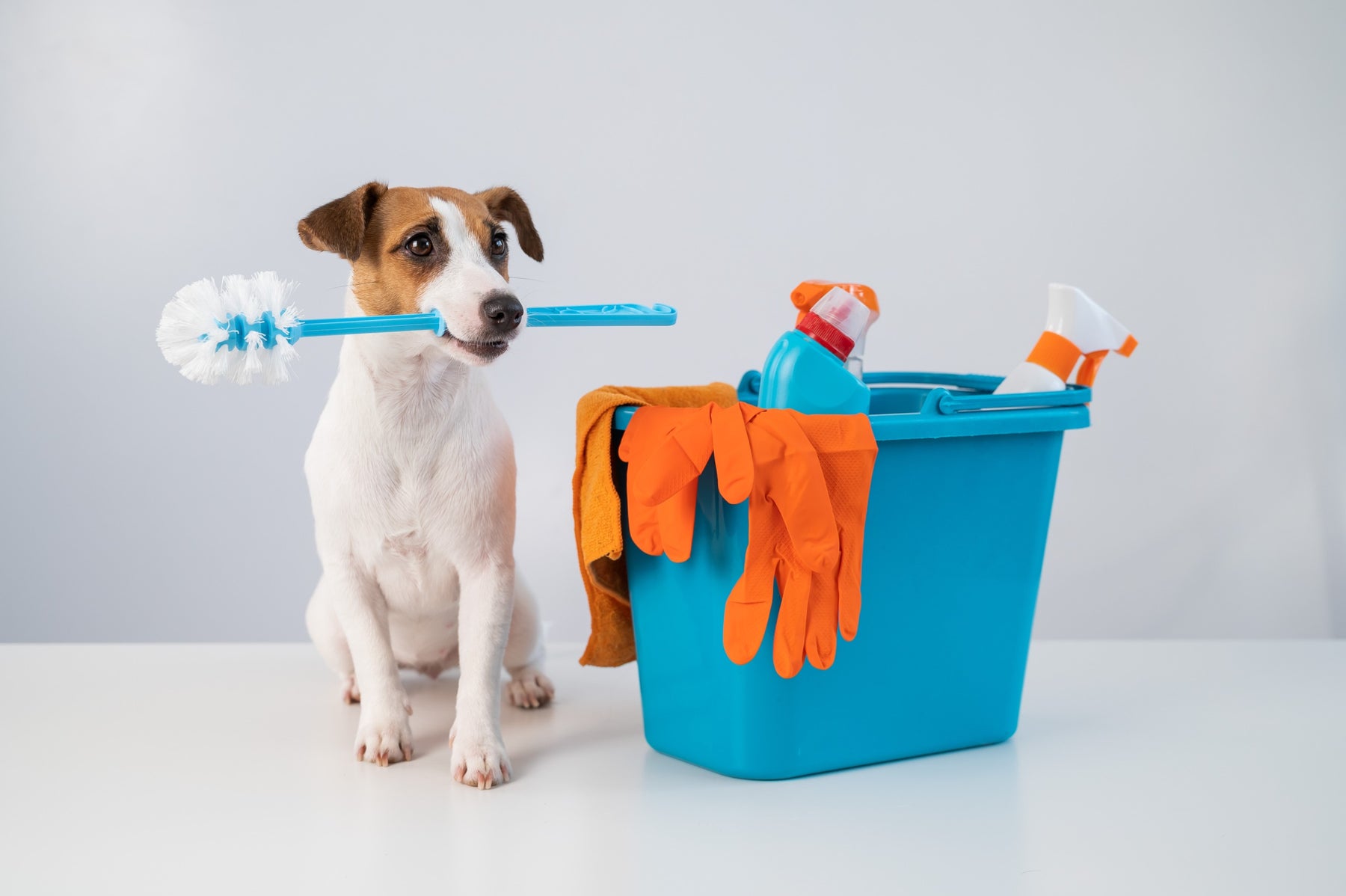
Careful Use of Cleaning Products Around Pets
Many people have started working from home, and schools and colleges have transitioned to distance learning. With heightened awareness of our health, many people have kept a routine of continually sanitizing the surfaces in their homes.
However, some of these sanitary products can be harmful to the pets that share our houses. Tim Evans, DVM, Ph.D., associate professor of toxicology in the College of Veterinary Medicine’s Veterinary Medical Diagnostic Laboratory, says we need to be more aware of and careful with these products.
“Certainly, as we’re using more disinfectants we need to be more aware that some of these can contain a caustic or corrosive agent,” he said. “It’s extremely important to read the product label and to follow directions exactly as they are written.”
Household cleaners and disinfectants are particularly dangerous for birds due to birds’ extremely efficient respiratory system. It is important to keep birds in well-ventilated areas and away from these chemicals. Exposure to chemicals used for cleaning and disinfecting poses a special risk to cats because of their curiosity and tendency to taste things. Cats also do not detoxify many toxic compounds as well as dogs. Dogs are at increased risk of exposure to these chemicals because of their indiscriminate eating and drinking behaviors. In addition, many dogs and, especially cats, lick their paws, so that after they walk on recently cleaned surfaces, in particular those that are still wet, they may ingest potential toxicants.
Making sure that household cleaning and disinfecting products are stored and used properly are important first steps in keeping them safe. Early signs that our pets may have inhaled or ingested these products are depression and acting withdrawn in birds, as well as salivation and vomiting in dogs and cats. It is always a good idea to keep a close eye on your pets to make sure they aren’t exhibiting these clinical signs and are still eating and drinking normally.
Given the increased use of cleaning products because of COVID-19 concerns, the proper dilution of these products can also make them less dangerous to our pets, while being just as effective in cleaning and disinfecting. “Many of these products can be used relatively diluted,” said Evans. “With people justifiably concerned about potential exposure to COVID-19, they may think that if a little is good, a lot is going to be better. That is not necessarily true, and it can be dangerous for pets.”
While we are all doing our best to keep our families healthy, we may be unknowingly putting our pets at risk. If you think your pet may have been exposed to a household cleaner, disinfectant or something else potentially toxic, you should contact your veterinarian. You can also visit the Animal Poison Control Center or Pet Poison Helpline websites for immediate information or call their 24/7 number at (888) 426-4435 or (855) 764-7661.
